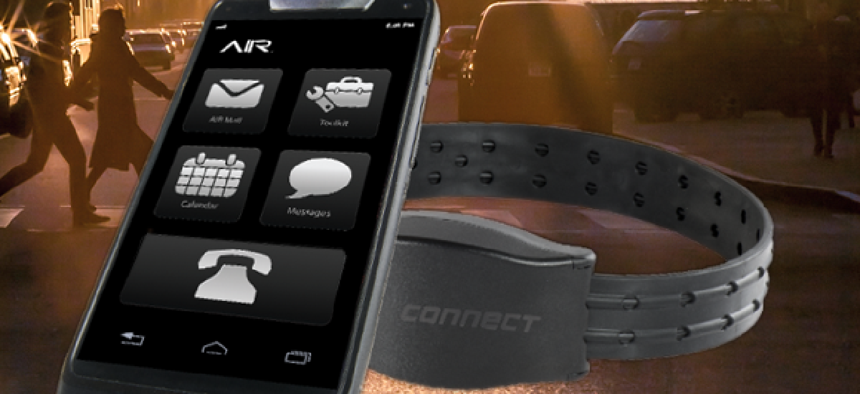Apps and discreet monitoring could keep teen offenders out of jail


Connecting state and local government leaders
Technology that pairs GPS, Bluetooth and smartphones with lightweight ankle bracelets will allow officials to keep some teenage offenders out of jail as they await trial.
Starting this month, the Manhattan district attorney’s office is piloting a program to keep teenage offenders out of jail.
Teenagers age 16 to 18 accused of certain felonies will be allowed to wear an ankle bracelet with GPS tracking instead of going to Rikers Island to await trial.
Unlike today’s clunky ankle bracelets, these are designed to be discreet, said Nathan McConathy, CTO at Corrisoft, a technology and services company supporting the corrections industry.
“Very large ankle bracelets have a stigma associated with them. If you’re at a job site or soccer game and you see somebody with a big bracelet on their ankle, you pull your kids away from them," McConathy told Fast Company. "[But] if they’re at church on Sunday morning and have pants on, you’re not going to notice the size of our ankle bracelet. It does not immediately identify the person with the scarlet letter . . . [and] it makes it easier for someone to relate with them as a person, rather than identifying them for something they did in the past."
The ankle bracelet’s minimalist design is achieved by eliminating the heavy batteries and chips found inside a traditional bracelet. Instead, it has a Bluetooth chip that communicates with a paired phone that users must carry. A fiber optic wire inside the band sends occasional encrypted messages to the phone to ensure that the bracelet hasn’t been removed. If the cuff is opened, a single-use holding pin breaks so it can’t be closed again. It can run for nine months without recharging.
The smartphone is similarly discrete – the Corrisoft software operates on a standard Android phone that the teens can also use to make calls or browse the web – albeit with adjustments that have been made to the firmware to avoid tampering.
The phone also has a built-in calendar shared between the user and the parole officer, in which various trips can be approved securely. It contains a complete list of tasks required to avoid re-incarceration, like weekly drug tests. Abandoning the phone or skipping appointments – without contacting the counselor - will lead to an arrest, Karen Friedman Agnifilo, Manhattan’s chief assistant district attorney, told the New York Times.
“We are trying to find ways to have only those people in custody who need to be in custody,” said Cyrus Vance, Manhattan’s district attorney. Echoing Vance, Agnifilo said the technology has the potential to “keep these children on the straight and narrow.”
Only teenagers that have been deemed good candidates through psychological surveys and tests are eligible. Teenagers targeted for the program have been charged with such crimes as grand larceny, drug dealing and robbery committed without a weapon.
Prosecutors said the technology could allow teenagers accused of crimes to receive counseling or treatment earlier in the criminal process as well as the potential for a non-prison sentence. Twenty defendants will be offered the option at a cost of about $100,000 for the first year.
Corrisoft’s technology has been deployed in parole departments in Indiana and Kentucky to track the location of ex-inmates and offer them a direct line of communication with their parole officers. In California, another type of GPS program has been successfully used to track sex offenders, reported the National Institute of Justice.
The move to GPS tracking instead of incarceration is one of several options states are adopting to reduce recidivism and lower prison overcrowding. Last year the New York Department of Probation began piloting a new goal-tracking web-app, MyNeON (Neighborhood Opportunity, Network Program) to track probationers and have them earn points for positive activities designated by community leaders. Florida is adopting predictive analytics to reduce recidivism with juvenile offenders, issuing juveniles with low risks of reoffending a civil citation instead of an arrest.




